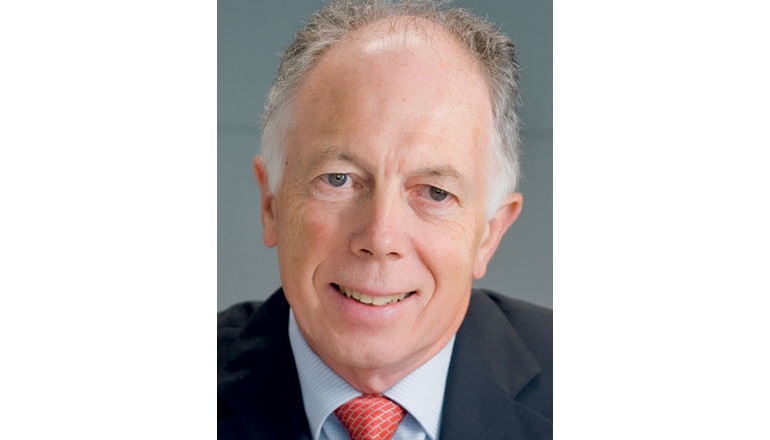NZ Transport Agency CEO Geoff Dangerfield recently stepped down from his role as leader of the agency, after taking the organisation through a complex merger and some of the biggest roading projects in country’s history. He talks to MARY SEARLE BELL about his time at the NZTA and his plans for the future.
When Geoff Dangerfield took the helm of the NZ Transport Agency in July 2008, he was heading up a new organisation. Prior to that, the state highway network was operated and developed by Transit NZ, while vehicle and driver licencing, among other things, was looked after by Land Transport New Zealand (LTNZ).
Geoff describes himself as the “set-up CEO”, tasked with bringing the two organisations together.
“I was attracted to the transport sector because it’s such an interesting and exciting sector and it touches everybody,” he says.
Geoff began his career in the Ministry of Works. He has a Masters degree in the management of natural resources and became interested in the economics of resource use while at the ministry.
Working for Treasury through the 1980s’ reform period taught him a lot about the corporatisation of government trading activities. He ended up as deputy secretary to the Treasury, which, he says, set him up to take on leadership roles in the public sector. The first of which was as CEO of the Ministry of Economic Development; then came his latest role with the NZTA.
After seven-and-a-half years at the helm of the agency he is now moving on. He believes he has “achieved a really integrated organisation, and a much more integrated approach to how we think about transport and network development”.
He says, “The way the agency looks out to stakeholders and customers is, in my point of view, very satisfying.”
Geoff’s first challenge was to merge the different cultures and systems of the two organisations. LTNZ, itself a merger of the Land Transport Safety Authority and Transfund just a few years earlier, had a very considered, ‘let’s analyse it’ culture, he says, whereas Transit had a very strong ‘let’s make it happen’culture. His approach was to keep the best of what was already there.
“I was never for throwing out the baby with the bathwater because both organisations had a proud heritage and had done some really good things. I was all for keeping the best of both organisations while forging something new.”
Forging a new organisation takes time, he adds. “I said at the time that it would take four to five years before the place was truly humming.”
From the end users’ point of view, Geoff says we now have an agency that’s looks at all transport modes and how those modes work together. It is also working hand in glove with local government – a necessary partnership, he says, as the average transport user doesn’t know if they’re on a state highway or a local road.
“It’s a road network, and transport networks by their very nature are integrated. It is incumbent on us to make sure their experience is as integrated as possible, by working with all the partners with the user in mind.”
The Transport Agency is now working closely with KiwiRail on integrating the road and rail networks and there has also been increasing focus over the past few years on active modes and cycling, and a much stronger emphasis by the agency and local government on public transport.
Geoff says he’s proud of the way the NZTA runs its relationships with contractors.
“To have a healthy contracting sector is really critical to our success, and to help with that we’ve been very deliberate about making sure the contracting sector understands what our future plans are.”
Health and safety issues are also paramount.
“The health and safety game is changing quickly – we’ve all got to step up. It’s been a really good experience, from my point of view, to be able to sit around the table with the leaders from the contracting sector and work collectively on how to keep our workers safe.”
The move to more alliance projects and joint ventures has also brought the agency closer to its contractors.
“We’ve used alliances very successfully over the last few years on some of our critical projects. What I love about the alliance approach is that everybody commits themselves to the project outcome, and it creates an environment where people search for the best solution.
“In some respects people take off their organisational hat at the door and work for the project.”
Alliancing has been a very good experience from the agency’s point of view, he says, and there will be more collaborative ventures in the future.
“I think it’s exciting,” he says.
Geoff is calling his public sector CEO career to a close after 15 years. “I’ve loved this job, it’s been fantastic.” But it’s time to let go.
After a “nice, long summer holiday” he’ll look for other opportunities – not at the CEO level, but in governance or advisory work. “We’ll see what comes,” he says.
Retirement is not an option. “I have a long list of other things I want to achieve and do in my personal life that a big job like this doesn’t necessarily let you do.
“I’ve told my colleagues and my family we’re not allowed to use the ‘R’ word. But what does retirement mean these days? Retirement means you work in a different way. In one sense I’m retiring from this role, but I’m not retiring from all work. I’ve had a great career and now I have an opportunity to do some other things.”


Parting words from Jeremy Sole- a final column